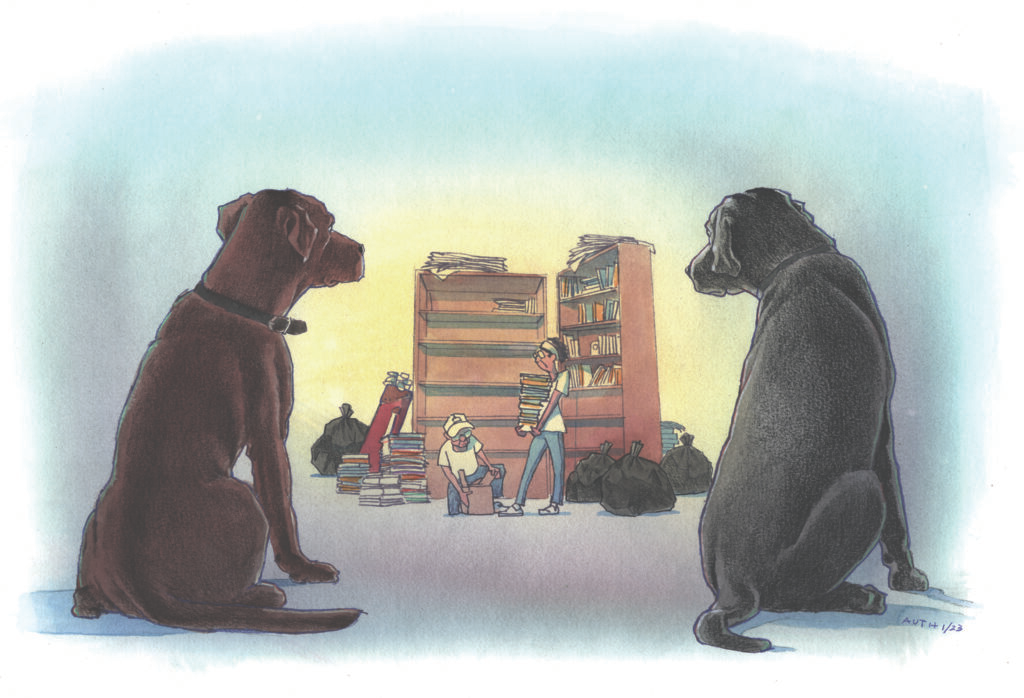The dogs didn’t know what to think.

There we were, packing up stuff and carrying it out.
They were certain that we were going somewhere and they feared they would be left behind.
But we weren’t leaving.
We were downsizing.
It all started back when we cleaned out my deceased parents’ house. As load after load of “stuff” went to the dumpster, my wife noted that when we got home, we should do the same, so that our children would not have to face the task we were facing.
Though it was pleasant to imagine irritating my children even after I had passed on to my reward, I kept quiet and hoped that she would drop the idea.
She didn’t.
Not long after we got back, the downsizing began.
We started with my books.
For a teacher, which is what I was mostly, books are our life blood. We read them. From them we get the ideas and information that we use to dazzle students and colleagues.
But I was retired. There were no more lectures, no more colleagues or students to dazzle.
So, we (she?) decided that if a book has not been consulted in the last year, out it goes.
Not to the trash, but to some organization’s rummage sale. There it will be bought by someone who, in the fullness of time, will donate it as I was doing.
Onward I went; and as I dug deeper, I realized that the hoarding gene that afflicted my parents was passed on to me.
Daddy saved National Geographic. I saved Smithsonian.
I also saved manuscripts of my books and articles, as well as the notes that were the basis on which the books and articles were written. Reams of paper revealing the process which turned the blank page into a rough draft into the finished product, which was duly sent to the publisher.
Will someone, one day, want to study how I did it, just as today scholars study manuscripts left behind by literary giants like Faulkner and Hemingway?
Nah.
Quickly our recycle bin filled and we had to borrow our neighbor’s. What was not recyclable was black-bagged for the trash.
At last it was done.
Then I was left to reflect on what was gone and what remained. So much of it could have, maybe should have, been thrown out long ago, but throwing out is hard – until you get started.
Once begun, it gets harder and harder to stop.
I hope our children appreciate what we have done.
You think?
Nah.
Harvey H. (Hardy) Jackson is Professor Emeritus of History at Jacksonville State University. He can be reached at [email protected]




